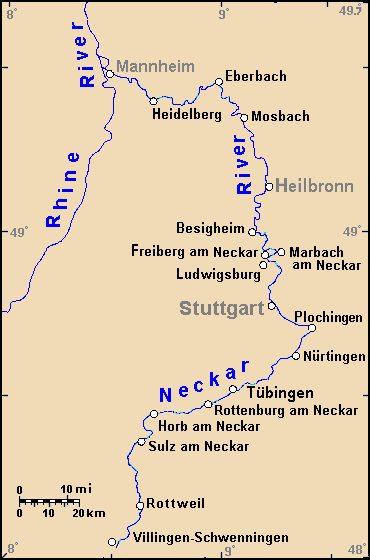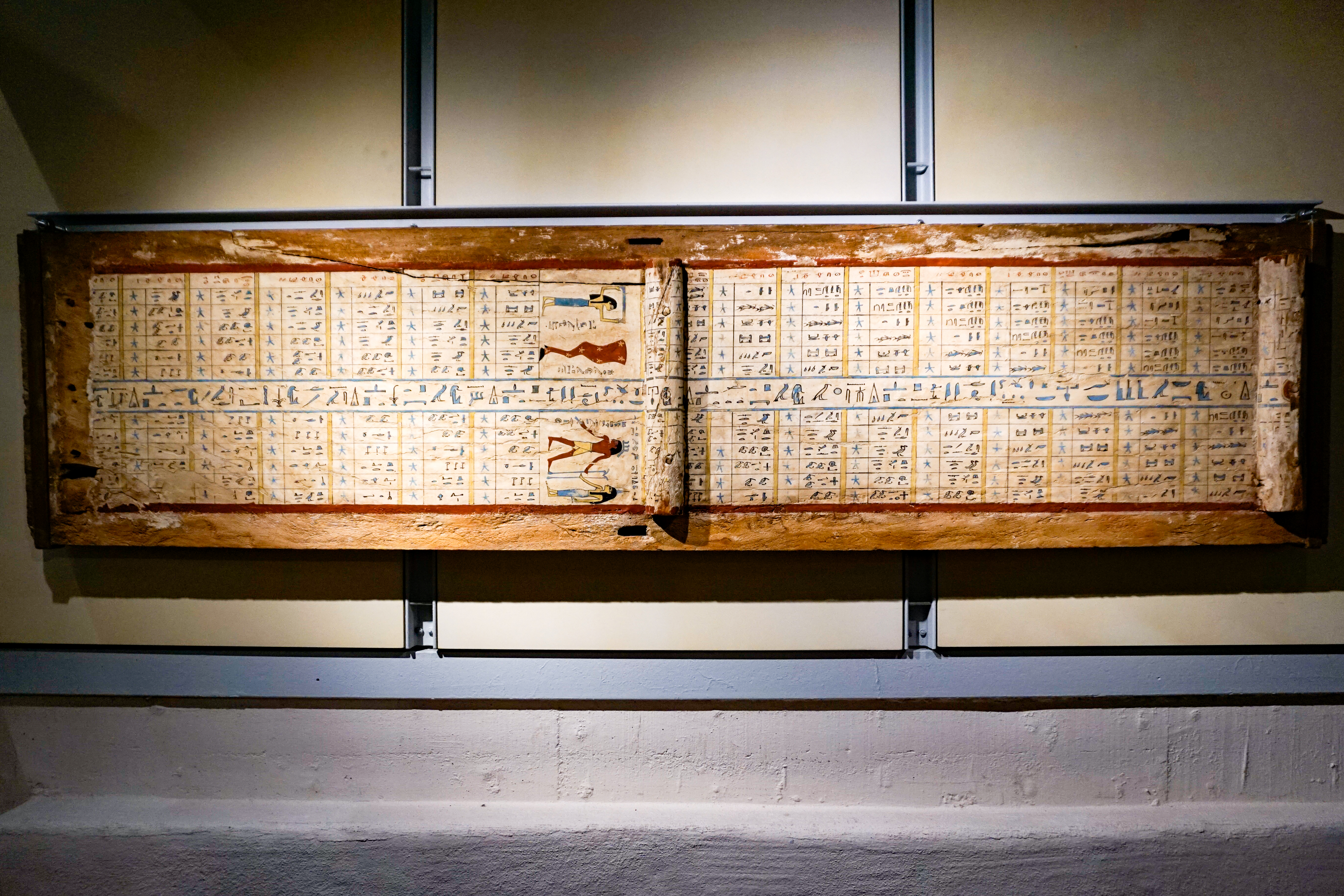|
Gustav Schübler
Gustav Schübler (15 August 1787 – 8 September 1834) was a German naturalist, and the founder of applied meteorology in Germany. In 1817 Schübler became professor of botany, natural history and agricultural chemistry at the University of Tübingen, Germany. He worked in identifying and classifying new species, many with his colleague Georg Matthias von Martens (1788–1872). Selected works * ''Grundsätze der Meteorologie in näherer Beziehung auf Deutschland's Klima'', 1831 – Principles of meteorology as it applies to Germany's climate. * ''Untersuchungen über die Vertheilung der Farben und Geruchsverhältnisse in der Familie der Rubiaceen'', 1831 – Studies on the distribution of color and odor conditions in the family Rubiaceae. * ''Untersuchungen über die Farbenveränderungen der Blüthen'', 1833 – Studies on the changes of color in flowers. * ''Flora von Württemberg'', 1834 (with Georg Matthias von Martens) – Flora of Württemberg. [...More Info...] [...Related Items...] OR: [Wikipedia] [Google] [Baidu] |
Heilbronn
Heilbronn () is a List of cities and towns in Germany, city in northern Baden-Württemberg, Germany, surrounded by Heilbronn (district), Heilbronn District. From the late Middle Ages on, it developed into an important trading centre. At the beginning of the 19th century, Heilbronn became one of the centres of early industrialisation in Württemberg. Heilbronn's old town was completely destroyed during the air raid of 4 December 1944 and rebuilt in the 1950s. Today Heilbronn is the economic centre of the Heilbronn-Franconia, Heilbronn-Franken region. Heilbronn is known for its wine industry and is nicknamed ''Käthchenstadt'', after Heinrich von Kleist's ''Das Käthchen von Heilbronn''. Geography Heilbronn is located in the northern corner of the Neckar Sedimentary basin, basin at the bottom of the Wartberg (Heilbronn), Wartberg (308 m). It occupies both banks of the Neckar, and the highest spot inside city limits is the Schweinsberg (mountain), Schweinsberg with a height of 372 ... [...More Info...] [...Related Items...] OR: [Wikipedia] [Google] [Baidu] |
University Of Tübingen
The University of Tübingen, officially the Eberhard Karl University of Tübingen (; ), is a public research university located in the city of Tübingen, Baden-Württemberg, Germany. The University of Tübingen is one of eleven German Excellence Universities. The University of Tübingen is especially known as a centre for the study of plant biology, medicine, law, archeology, ancient cultures, philosophy, theology, religious studies, humanities, and more recently as a center of excellence for artificial intelligence. The university's noted alumni and faculty include presidents, a pope, EU Commissioners, judges of the Federal Constitutional Court, and Johannes Kepler. The university is associated with eleven List of Nobel laureates, Nobel laureates, especially in the fields of medicine and chemistry. History The University of Tübingen was founded in 1477 by Count Eberhard I, Duke of Württemberg, Eberhard V (Eberhard im Bart, 1445–1496), later the first Duke of Württemberg ... [...More Info...] [...Related Items...] OR: [Wikipedia] [Google] [Baidu] |
German Meteorologists
German(s) may refer to: * Germany, the country of the Germans and German things **Germania (Roman era) * Germans, citizens of Germany, people of German ancestry, or native speakers of the German language ** For citizenship in Germany, see also German nationality law **Germanic peoples (Roman era) * German diaspora * German language * German cuisine, traditional foods of Germany People * German (given name) * German (surname) * Germán, a Spanish name Places * German (parish), Isle of Man * German, Albania, or Gërmej * German, Bulgaria * German, Iran * German, North Macedonia * German, New York, U.S. * Agios Germanos, Greece Other uses * German (mythology), a South Slavic mythological being * Germans (band), a Canadian rock band * "German" (song), a 2019 song by No Money Enterprise * ''The German'', a 2008 short film * "The Germans", an episode of ''Fawlty Towers'' * ''The German'', a nickname for Congolese rebel André Kisase Ngandu See also * Germanic (disam ... [...More Info...] [...Related Items...] OR: [Wikipedia] [Google] [Baidu] |
19th-century German Botanists
The 19th century began on 1 January 1801 (represented by the Roman numerals MDCCCI), and ended on 31 December 1900 (MCM). It was the 9th century of the 2nd millennium. It was characterized by vast social upheaval. Slavery was abolished in much of Europe and the Americas. The First Industrial Revolution, though it began in the late 18th century, expanded beyond its British homeland for the first time during the 19th century, particularly remaking the economies and societies of the Low Countries, France, the Rhineland, Northern Italy, and the Northeastern United States. A few decades later, the Second Industrial Revolution led to ever more massive urbanization and much higher levels of productivity, profit, and prosperity, a pattern that continued into the 20th century. The Catholic Church, in response to the growing influence and power of modernism, secularism and materialism, formed the First Vatican Council in the late 19th century to deal with such problems and confirm c ... [...More Info...] [...Related Items...] OR: [Wikipedia] [Google] [Baidu] |
1834 Deaths
Events January–March * January 1 – Zollverein (Germany): Customs charges are abolished at borders within its member states. * January 3 – The government of Mexico imprisons Stephen F. Austin in Mexico City. * January – The Wilmington and Raleigh Railroad is chartered in Wilmington, North Carolina. * February 3 – Wake Forest University is founded as the Wake Forest Manual Labor Institute in Wake Forest, North Carolina. * February 12 – Freed American slaves from Maryland form a settlement in Cape Palmas, it is named the Republic of Maryland. * February 13 – Robert Owen organizes the Grand National Consolidated Trades Union in the United Kingdom. * March 6 – York, Upper Canada, is incorporated as Toronto. * March 11 – The United States Survey of the Coast is transferred to the Department of the Navy. * March 14 – John Herschel discovers the open cluster of stars now known as NGC 3603, observing from the Cape of Good Hope. * March 28 – ... [...More Info...] [...Related Items...] OR: [Wikipedia] [Google] [Baidu] |
1787 Births
Events January–March * January 9 – The North Carolina General Assembly authorizes nine commissioners to purchase of land for the seat of Chatham County. The town is named Pittsborough (later shortened to Pittsboro), for William Pitt the Younger. * January 11 – William Herschel discovers Titania and Oberon, two moons of Uranus. * January 19 – Mozart's '' Symphony No. 38'' is premièred in Prague. * February 2 – Arthur St. Clair of Pennsylvania is chosen as the new President of the Congress of the Confederation.''Harper's Encyclopaedia of United States History from 458 A. D. to 1909'', ed. by Benson John Lossing and, Woodrow Wilson (Harper & Brothers, 1910) p167 * February 4 – Shays' Rebellion in Massachusetts fails. * February 21 – The Confederation Congress sends word to the 13 states that a convention will be held in Philadelphia on May 14 to revise the Articles of Confederation. * February 28 – A charter is granted, ... [...More Info...] [...Related Items...] OR: [Wikipedia] [Google] [Baidu] |
Allgemeine Deutsche Biographie
(ADB; ) is one of the most important and comprehensive biographical reference works in the German language. It was published by the Historical Commission of the Bavarian Academy of Sciences between 1875 and 1912 in 56 volumes, printed in Leipzig by Duncker & Humblot. The ADB contains biographies of about 26,500 people who died before 1900 and lived in the German language Sprachraum of their time, including people from the Netherlands before 1648. Its successor, the , was started in 1953 and is planned to be finished in 2023. The index and full-text articles of ADB and NDB are freely available online via the website ''German Biography'' ('' Deutsche Biographie''). Notes References * * External links * ''Allgemeine Deutsche Biographie'' – full-text articles at German Wikisource Wikisource is an online wiki-based digital library of free-content source text, textual sources operated by the Wikimedia Foundation. Wikisource is the name of the project as a whole; it i ... [...More Info...] [...Related Items...] OR: [Wikipedia] [Google] [Baidu] |
Württemberg
Württemberg ( ; ) is a historical German territory roughly corresponding to the cultural and linguistic region of Swabia. The main town of the region is Stuttgart. Together with Baden and Province of Hohenzollern, Hohenzollern, two other historical territories, Württemberg now forms the Federal State of Baden-Württemberg. Württemberg was formerly also spelled Würtemberg and Wirtemberg Castle, Wirtemberg. History Originally part of the old Duchy of Swabia, its history can be summarized in the following periods: *County of Württemberg (1083–1495) *Duchy of Württemberg (1495–1803) *Electorate of Württemberg (1803–1806) *Kingdom of Württemberg (1806–1918) *Free People's State of Württemberg (1918–1945) After World War II, it was split into Württemberg-Baden and Württemberg-Hohenzollern owing to the different Allied Occupation Zones in Germany, occupation zones of the United States and France. Finally, in 1952, it was integrated into Baden-Württemberg. Stutt ... [...More Info...] [...Related Items...] OR: [Wikipedia] [Google] [Baidu] |
Rubiaceae
Rubiaceae () is a family (biology), family of flowering plants, commonly known as the coffee, madder, or bedstraw family. It consists of terrestrial trees, shrubs, lianas, or herbs that are recognizable by simple, opposite leaves with Petiole (botany), interpetiolar stipules and sympetalous actinomorphic flowers. The family contains about 14,100 species in about 580 genera, which makes it the fourth-largest angiosperm family. Rubiaceae has a cosmopolitan distribution; however, the largest species diversity is concentrated in the tropics and subtropics. Economically important genera include ''Coffea'', the source of coffee; ''Cinchona'', the source of the antimalarial alkaloid quinine; ornamental cultivars (''e.g.'', ''Gardenia'', ''Ixora'', ''Pentas''); and historically some dye plants (''e.g.'', ''Rubia''). Description The Rubiaceae are morphologically easily recognizable as a coherent group by a combination of characters: opposite or whorled leaves that are simple and entire, ... [...More Info...] [...Related Items...] OR: [Wikipedia] [Google] [Baidu] |
Georg Matthias Von Martens
George Matthias von Martens (12 June 1788, Venice – 24 February 1872, Stuttgart) was a German lawyer, botanist and phycologist. He was the father of zoologist Eduard von Martens (1831-1904). He studied law at the University of Tübingen, where he also attended lectures by naturalist Carl Friedrich Kielmeyer and astronomer Johann Gottlieb Friedrich von Bohnenberger. From 1818 to 1821 he worked in Ulm, afterwards being based in Stuttgart, where in 1829 he became an official interpreter for Italian, Spanish and Portuguese at the Ministry of Justice and the Interior. From 1836 onward, he held the title of councilor.de.Wikisource @ Allgemeine Deutsche Biographie As a botanist, he collected specimens from southern Germany, Austria and northern Italy. In 1832, with Gustav Schübler, he conducted botanical investigations in southeastern Wür ... [...More Info...] [...Related Items...] OR: [Wikipedia] [Google] [Baidu] |
Agricultural Chemistry
Agricultural chemistry is the chemistry, especially organic chemistry and biochemistry, as they relate to agriculture. Agricultural chemistry embraces the structures and chemical reactions relevant in the production, protection, and use of Crop, crops and livestock. Its applied science and technology aspects are directed towards increasing yields and improving quality, which comes with multiple advantages and disadvantages. Agricultural and environmental chemistry This aspect of agricultural chemistry deals with the role of molecular chemistry in agriculture as well as the negative consequences. Plant biochemistry Plant biochemistry encompasses the chemical reactions that occur within plants. In principle, knowledge at a molecular level informs technologies for providing food. Particular focus is on the biochemical differences between plants and other organisms as well as the differences within the plant kingdom, such as dicotyledons vs monocotyledons, gymnosperms vs angiosp ... [...More Info...] [...Related Items...] OR: [Wikipedia] [Google] [Baidu] |




